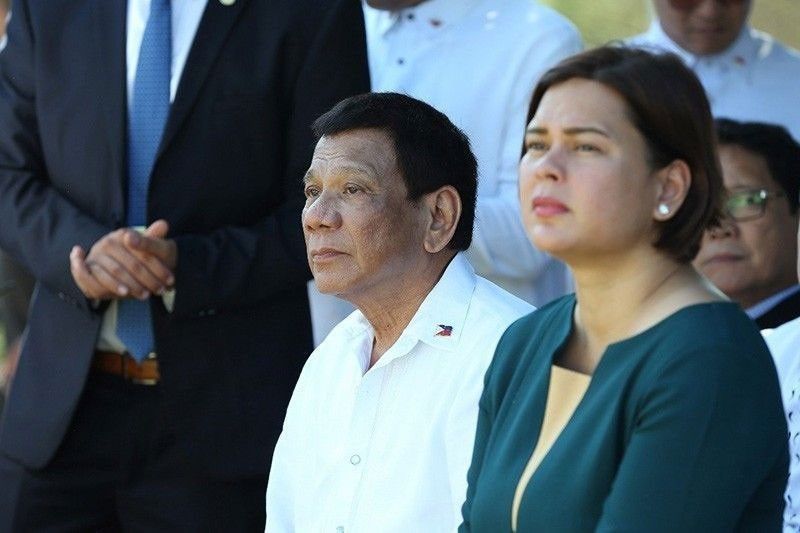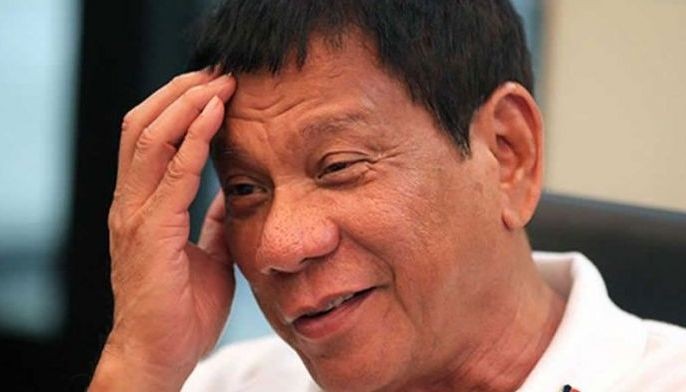Duterte-Duterte tandem a 'final stop' in decades-long rise of dynasties — analysts

MANILA, Philippines (Updated June 5, 10:34 a.m.) — The prospect of father-daughter rule—unprecedented on the national level—looms large over the Philippines as the 2022 elections approach.
President Rodrigo Duterte and his daughter, Davao City Mayor Sara Duterte-Carpio, have yet to confirm and have previously denied they have plans to seek national posts next year, keeping deliberately vague in a manner reminiscent of the run-up to the former's presidential campaign.
Their allies, however, have made a show of urging them to run.
The ruling PDP-Laban party recently convened a national assembly despite resistance from Sen. Manny Pacquiao, the party's acting president. There, its members passed a resolution urging President Duterte to run for vice president and to choose his own running-mate.
Rep. Joey Salceda (Albay), who is aligned with the administration, claimed that five political parties are already forming alliances to back Sara Duterte’s candidacy for president.
"I think that it is a possibility, as surreal as it might sound," political and legal analyst Tony La Viña told Philstar.com, referring to the likelihood of a Duterte-Duterte candidacy and victory in 2022.
La Viña warned that the Davao clan's occupation of the highest and second-highest seats of power in the country would be the "final stop" in three decades that have been marked by the ascendancy of political dynasties.
Michael Yusingco, a senior research fellow at the Ateneo Policy Center, similarly told Philstar.com that a "Duterte-Duterte tandem winning the 2022 elections will definitely magnify the domination of dynastic politicians" in government.
The Philippines, he noted, is already known for the magnitude of political clans that rule it, and two Dutertes occupying the country's top posts nearly inconceivable in a democracy.
"If this really eventuates, then it will be hard for others to fathom how a democratic society can allow itself to be governed by a single family."
Clans and voters' choices
Are political dynasties and their ubiquity unhealthy for democracy? On the one hand, voters keep political clans in power, as both the Duterte and the Aquino administrations pointed out.
"I am embarrassed because people keep on repeating that phrase about dynasty. It’s true. It’s not good if only one family is in power for so many years. But the problem lies with the people," Duterte said in June 2019.
Aquino, a product of a dynasty himself, acknowledged the limits on voting choices that powerful families wittingly or unwittingly impose on the electorate. In his sixth and last State of the Nation Address, the former president appealed to a joint session of Congress to pass an anti-dynasty law.
"There is also something wrong with giving a corrupt family or individual the chance to bathe in power all their lives," he said in Filipino.
Long-held dynasties tend to leave the status quo largely unchanged and the state becomes "unable to implement social and political reforms that ensure economic development benefits all Filipinos," Yusingco said.
This is because expanded dynasties over the last three decades leverage their positions in governments and have thus sustained a "political culture... steeped in corruption and clientelism."
"Patronage politics consistently undermine problem-oriented policymaking and legislation," he added.
Families' lasting sway over electoral strongholds also tends to keep out non-dynastic competition.
"In some instances, candidates from political clans run for office virtually unopposed. A non-dynastic politico winning over a dynastic one is an exceedingly rare occurrence," Yusingco said.
Often the choice is between a fat dynasty or a family that has members simultaneously holding elective positions in government, and a thin dynasty, a clan whose members succeed each other in public office.
READ: Political dynasties reign in Philippines — study
"Their domination of the political system has sustained the dysfunction afflicting state governance and has made electoral politics essentially a 'choosing the lesser evil' proposition for Filipinos," Yusingco said.
As a result, some "local communities continue to suffer inept and corrupt dynastic leaders." Reformist candidates not born into politicial advantage but who happen to be "more qualified, passionate and patriotic, including many from the youth ranks have little to no chance at all to be elected," he added.
Possible fixes languish in Congress
In the 18th Congress, a number of anti-political dynasty bills are pending at the committee level with little to no hope of moving forward.
While a total prohibition of political dynasties might be undemocratic as some lawmakers argued, Yusingco said the domination of clans necessitates "the management of the number of their members who can run for office at a given election period."
Proposed laws must seek to ensure true competition in elections rather than to eliminate dynasties altogether. "Candidates outside the dynastic clique must have a clear and viable path for them to participate in elections," he said.
Law professor La Viña also raised that developing political parties "with distinct ideologies" would serve to temper the dominance of political dynasties. Senate Minority Leader Franklin Drilon has a bill that seeks to do this but it too is pending at the committee level.
But any such reforms meet tough opposition at the lawmaking level. Many of them, after all, benefit from the status quo themselves being members of political dynasties or allies of one or two clans. "Hence, their inaction on these vital legal reforms and their concurrent justification that voters are free to decide whether to put them in office or not," Yusingo said.
Remedies will have to come from charter change given the current composition of Congress. "That's what the 1987 Constitution should have done directly — ban political dynasties," La Viña said.
--
Editor's Note: The update applies a few revisions on phrasing and a subheadline.
- Latest
- Trending





























